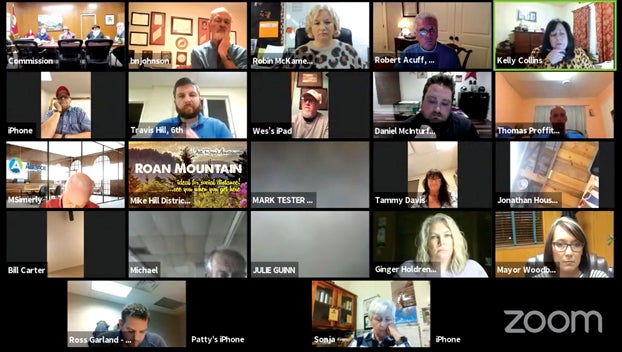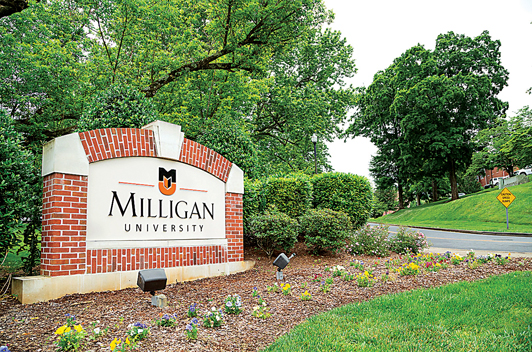Commission sending recommendations to City on Animal Shelter 501c3 status
Published 3:34 am Wednesday, February 24, 2021
|
Getting your Trinity Audio player ready...
|
BY IVAN SANDERS
STAR STAFF
ivan.sanders@elizabethton.com
In a specially called meeting on Monday involving the Carter County Commission and the Elizabethton City Council, after a lengthy discussion covering nearly three and a half hours the commission cast a vote to send their recommendation to the Elizabethton City Council in regard to their position of the Elizabethton/Carter County Animal Shelter becoming a 501c3 non-profit.
On the motion of Gary Bailey and seconded by Robin McKamey, the commission voted 19-5 to send the recommendation of giving the Animal Shelter 16 months to achieve 501c3 status while committing $225,000 minimum funding to the shelter.
Those voting against the recommendation were Robert Acuff, Mike Hill, Sonja Culler, Thomas Proffitt, and Kelly Collins.
Currently, the county and city are in a joint relationship with the animal shelter so it would take both governing bodies to agree to whatever is negotiated with the ball now being in the City of Elizabethton’s court as the commission has cast its lot on the 501c3 status.
It was made clear that what was being sent to the city was only a recommendation.
McKamey had invited Jenny Brock, President of the Washington County and Johnson City Animal Control Board, and Tammy Davis, animal shelter director of the Washington County Johnson City shelter, to share their experiences with the commission as their animal shelter has operated under 501c3 status since 1987.
Brock advised that even though their shelter is a 501c3 non-profit, they still receive support from the city and county as they currently operate on a $1 million a year budget.
Washington County provides $190,000 a year, Johnson City $250,000 per year with an additional $109,000 appropriated for debt service on the animal shelter facility as they had to increase the size of the building.
Although the economic status of both counties looks completely different, Brock said there are grants available to those with the 501c3 status to help increase funds coming into the animal shelter.
The Washington County-Johnson City Animal Shelter is also able to do fundraising due to being a 501c3 which brought in an additional $600,000 in 2020.
One great advantage to the 501c3 according to Brock was the fact there was a board appointed to oversee the larger picture of their shelter while the director was responsible for managing the budget of the shelter including employees’ salaries and all other operating expenses taking the burden from the governing body having to oversee the daily operations.
“We highly encourage our board members to try and not get involved in day-to-day items but to look at the bigger picture,” said Brock. “It’s important to walk that fine line.”
The public was invited to participate with most callers voicing their concerns that the changes would impact those who have worked at the shelter many years and loss of funding to the shelter should it be turned into a 501c3.
Also, in reference to Brock’s comments on the number of donations, the callers also expressed concern that the difference in population and businesses would also have a huge impact when it came to raising donations. Another concern would be finding someone to write the grants.
Commissioner Ginger Holdren pointed out with a 501c3, that everyone would get the best of both worlds getting head and heart.
“I think that we should fund the shelter and then those with huge hearts can step in and help,” Holdren said. “We need to seek different methods other than what we have done in the past.”
All appeared to agree that communication, or the lack of, has been one of the most detrimental barriers in dealing with the issue.
McKamey emphasized that people need to hear the facts because if the animal population could be reduced through spaying and neutering then there wouldn’t be a need for additional funding.
After the vote to make the recommendation, the commission moved to a discussion on hiring an Animal Control Officer.
Batting around several suggestions ranging from salary expectations to whether it would be more efficient to hire two part-time ACO’s, commissioners voted 24-0 on Commissioner Austin Jayne’s motion to give the Animal Shelter Board $15,625 from the Sheriff’s Department animal control line in the budget for the ACO for the remaining 18 weeks left in the fiscal year budget.
The remaining money in the sheriff’s animal control line item will go back into the general fund, and if the Animal Shelter needs any additional funds, they will bring those to the Budget and Finance Committee to be acted on.






